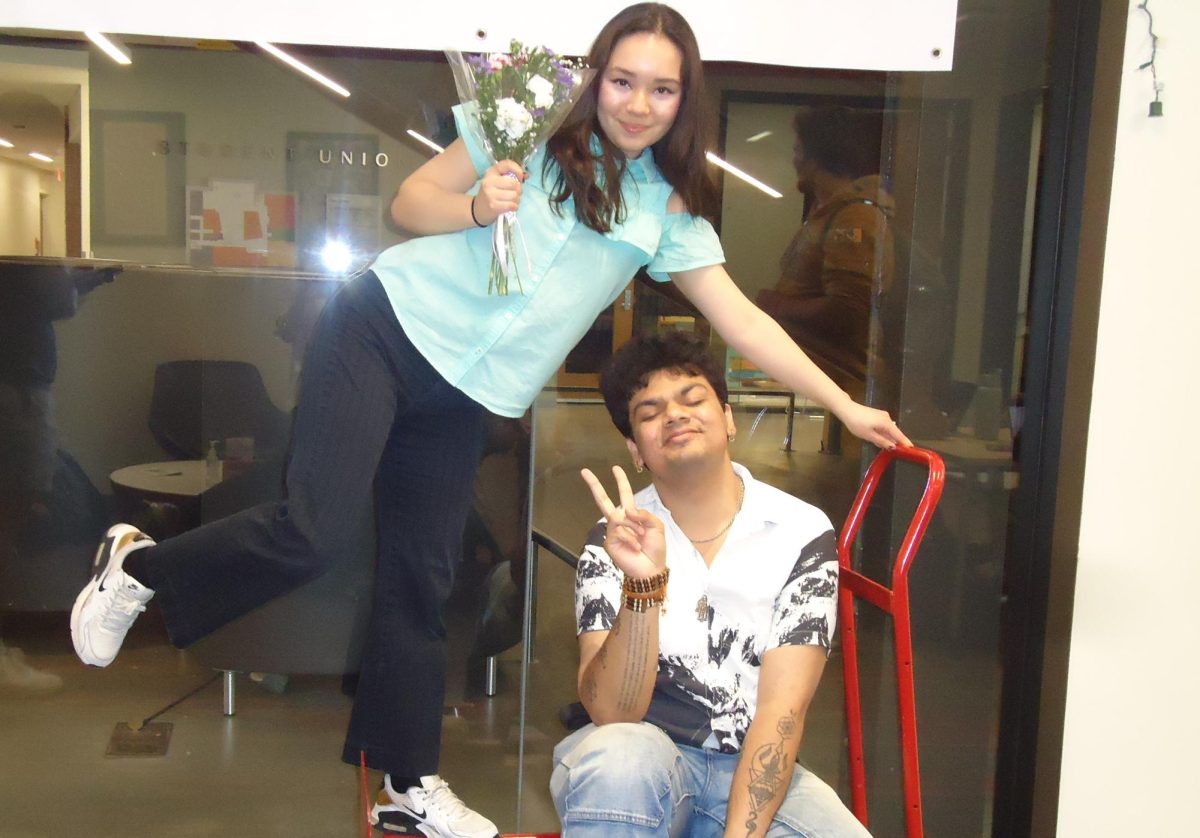Isaac Newton figured out that once an object is in motion, it will keep moving until something stops it. Unfortunately, once an object is inert, it will sit there, motionless, until something or someone gives it a little push. I’ve noticed the same principles apply to students at the University of Massachusetts. Inertia not only feeds upon itself; it’s contagious. My question to the student body is, how big of a push do students need to register to vote?
Students are notoriously the least participatory demographic in domestic politics. Consequently, politicians don’t listen to young people. Just as Newton predicted, students’ sense of powerlessness maintains political inertia amongst young people, while many politicians are simply too self-interested to set student activism in motion. It seems that we, as students, are going to have to cheat the laws of nature and give ourselves a much-needed push.
If you think your vote doesn’t count, you might be correct. One vote probably won’t get a national politician elected, and won’t inspire a great deal of alarm in the hearts of the opposition. But remember, giving up isn’t going to affect national politics either. Voter participation has been declining for 40 years; less than half of all registered voters took part in the 2000 presidential election. If students exercised their right to vote, they could easily make a huge impact on national politics.
According to the U.S. Census in 2000, just under 30 million Americans are between the ages of 18 and 24; around 20 million more are between 25 and 29 years old. According the Federal Election Commission, 105,586,274 people voted in the last presidential election, whereas only around 4 million young people aged 18-24 participated. College-age Americans made up about 5% of the total electorate. The most participatory demographic is the 65 and older group. In other words, your grandparents are changing the face of politics while you stand by and watch.
Politicians, much like all professionals, are concerned with job security; elected officials want to be reelected and adopting policies that are popular among a demographic that doesn’t vote isn’t a good way to remain in office. If students want Washington to care about public higher education, the environment and other issues popular among young people, they must break free of inertia and vote.
A solitary vote might not make a difference, but momentum is as difficult to contain as inertia. Once students are set in motion in the political universe, we will be unstoppable. One way to get momentum going is to get involved and take as many people as possible with you. It seems that many students are willing to demonstrate their views through walkouts and protests, but demographically speaking, those same students aren’t willing to back up their convictions at the voting booths. Protests are a democratic way to communicate interests, but they don’t mean anything in Washington, Boston, or anywhere when the people holding up signs aren’t grabbing their pens and registering to vote.
Another way that students can garner political attention is through campaign contributions. Elected officials usually depend upon private donations to run a viable campaign. Believe it or not, contributions under $50 make a big difference, especially in local elections. If students combined their influence at the poll booths with the power of campaign finance, I guarantee you the University would be funded properly. The Boston State House won’t heed a group of kids with signs, but it will listen to their checkbooks.
The University Democrats are sponsoring a voter registration drive this week all over campus. The slogan is “Get On Board” and UDem’s will be signing people up on ironing boards instead of tables. I can’t imagine an easier way to get registered than to have people bring the forms to you, on campus, while they help you sign up. Incidentally, voter registration forms are far less complicated than the admissions application to UMass, so if you got into school you can register to vote with no problem.
If you miss the “Get On Board” crew on campus, don’t fret. The Smith Democrats are sponsoring a voter registration drive Thursday, Oct. 23 and voter registration information is always available at the University Democrats’ office in room 306 at the Student Union. Anybody can log on to The Democratic National Committee website to fill out registration forms online at www.democrats.org.
The past three years have been tough for the country and the university. UMass students have suffered through budget cuts that threaten the very academic core of our institution and the time has come for elected officials to take notice. Let’s make this election year an historic revolution in American politics; let’s make the students’ votes count.
Rachel Smith is a Collegian columnist.






